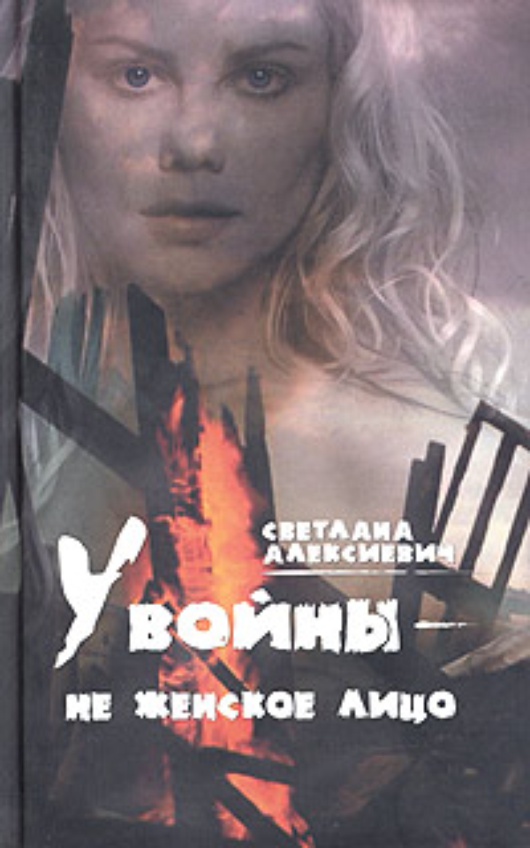
Svetlana Aleksiyevich
Published on
© Mila, Minsk Cafe Babel Her works are the reaction of the person who does not stay indifferent, who sees the truth, know that the truth exists and who is determined to share his knowledge with others. “War doesn’t Have Woman’s Face”, “Boys in Zink”, “Voice of Chernobyl” and many other works of hers strike the consciousness of society.
They astound, horrify, freeze, shock, and, obviously, provoke thinking not only about the past but also about the future. The name of the person who wanted us to think is Svetlana Aleksiyevich.
One can complete a book about Svetlana Aleksiyevich using only her own quotes. Various interviews and, of cause, her works build up the image of the writer. “I’m afraid that history will be replaced by mythology”. This phrase said by Aleksiyevich in one of interviews can be a title to entire creative work of hers. A fear for the safety of truthful, real history inspired Svetlana and emboldened her to speak about those things all the others in that huge scaring country were afraid of voicing.
The writer confesses that her literature idol was Ales Adamovich, another famous Belarusian writer, whose works encouraged her to writing in this very style and genre. It was Adamovich who worked out the idea to employ the stories of real people in the works about real events. The writer is convinced that private experience of people is the only trustworthy and objective though individual source of learning history. Materialization of such experience in a piece of literature is the way to preserve history. The books having brought Svetlana Aleksiyevich world-wide fame represent the chronicle of people’s life told by the characters themselves. The real basis in combination with author’s personal attitude towards the events depicted what makes the works “I Left the Village”, “War doesn’t Have Woman’s Face”, “Boys in Zink”, “Spellbound by Death”, “Voice of Chernobyl”, etc. that impressive. Here history speaks by itself. Shouts. It shoots out and breaks its way to the minds of humans.
 Book "War doesn’t Have Woman’s Face"
Book "War doesn’t Have Woman’s Face"
This naked and unadorned truth in the works by Aleksiyevich forced brave guards of morality to conceal it for years under the cover of dust in publishing houses. For example, the book “War doesn’t Have Woman’s Face” written in 1983 spent two years in the publisher without being printed and the author in her turn of accused of pacifism, naturalism and dethroning of the heroic image of soviet woman. “Boys in Zink” is the book about the criminal war in Afghanistan which had been held back for ten years; Svetlana Aleksiyevich went to Kabul to find out the truth about it. After the book had been brought out in 1989 a political trial of the author was organised in 1992 in Minsk. Civil and democratic activists in Belarus and abroad took up the cudgels for Svetlana.
Being a bur in the throat of authorities her books inspired other cultural figures to creative works in the given theme. The 40th anniversary of Victory Taganka Theatre celebrated with the performance “War doesn’t Have Woman’s Face” (the director of the performance s Anatoliy Efros). All in all Svetlana Aleksiyevich wrote 21 screen scripts and three plays. The shows based on her books were staged not only in USSR but also in France, Germany and Bulgaria.
The list of Svetlana’s awards is quite impressive: “Kurt Tucholski Preis” for “virtue and dignity in literature”, “Andrey Siniavsliy’s prize” “For nobleness in literature”, Russian independent award “Triumph”, “Leipzig Bucherpreis zur Europeischen Verstandigung – ‘98”, German award “For the Best Political Book”, Herder Preis, Alfred Toepfer Stiftung, and many other national and foreign prizes. Isn’t it the best evidence that the writer’s talent is recognized all over the world?
Unfortunately, Belarus failed to preserve one of its national heritages. Being an active member of Belarusian opposition Svetlana Aleksiyevich is out of government’s favour again. In the year 2000 she had to leave Belarus. At present she lives in Germany and works on two new books: “The Wonderful Deer of the Eternal Hunt” and “Second-hand Life (End of Red Man)”. These books are parts of initially intended cycle of books. One of them is about love, another about death. Today other themes and problems are in Svetlana Aleksiyevich’s concern. As admits the writer, this is due to the needs of modern society and time.



